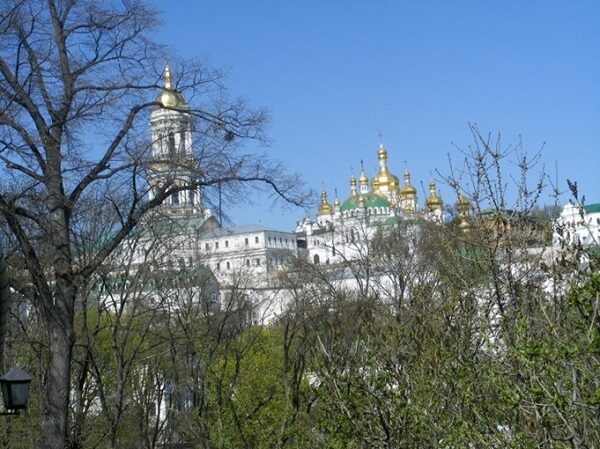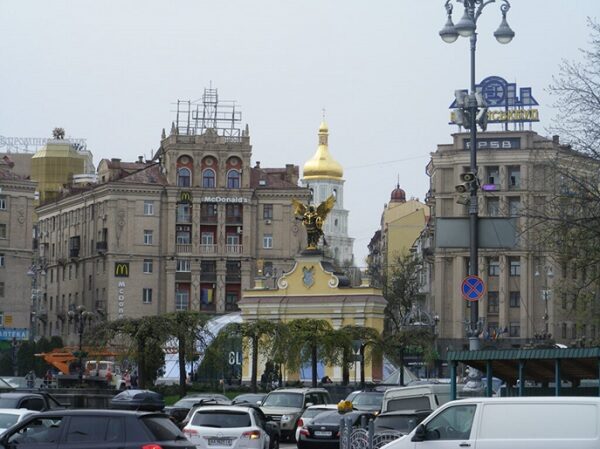The Gospel and Political Expediencies
6 June 2023The discussion concerning the relationship between Christ, Christianity and the Church on the one hand and politics on the other is very old. It centers on collaboration or confrontation, the exchange or substitution of roles, and began with their entwinement, which led to the ‘nationalization’ of the Church.
Naturally, this was preceded by the time of the Old Testament, when, within the framework of the pact between the people and God, the latter was not only involved in matters of governing the people, but also provided them with the relevant legislation.

The situation in the New Testament is entirely different. Christ himself defined the relationship between God and Caesar, taking great care, practically not morally, to teach nothing that would lead his followers, clergy and laity, to have the right or obligation to seek from or attribute to secular leaders things which properly belong to God. Likewise, that which was related to politics and politicians was not to be sought from God and his representatives. It must be stressed that the homeland on earth of Christ, as God and human, had been conquered by the Romans and that the Lord himself never linked the promised salvation of souls and the restoration of communion between the human race and God to the need for national liberation, although he did confirm that the authority of the secular leadership was established from above and from God.
Despite its institutionalization, for the first three centuries the Church continued to act on the same rationale and this was the cause of the persecutions, with the millions of martyrs who refused to subject their faith to the demands of the secular leadership. At this time, the struggle for the faith had more of the elements of voluntary martyrdom, in contrast to the tactic which was applied after the Church and State were conjoined. Then the struggle on behalf of the faith was identified with the sacrifice of heathens and heterodox in the name of God and the truth. This mission was undertaken by the State within the context of reciprocity in terms of obligations and commitments, since the Church as an institution could hardly condone and bless violence, at least in the East. Moreover, this was the reason why the Church persistently refused to entertain the idea of the fusion of ecclesiastical and political power in one person, in the belief that they were incompatible. How could someone, on the one hand, preach and promise love, reconciliation and peace while on the other endorsing the use of violence.
It is on precisely this incompatibility that the need for the differentiation between the roles of ecclesiastical and political leaders is based, despite the fact that both are considered to be God-given, in the sense that no authority can exist and function outside God’s dominion, although political leaders don’t derive their authority directly from God but from the people.
In any case, because of their role, political leaders have as their basic task the management of social sin which is for the most part expressed as social injustice and disorder. They have to be responsible for social cohesion, social order and, in particular, social justice. Within this context, and to the extent that these cannot be ensured by peaceful methods and moral regulation, the political authority is obliged to use immoral means such as direct or indirect violence, with the proviso that this is exercised lawfully and in the name of social interests.
The relationship between political leaders and God and religion differs depending on the times and the prevailing political and religious conditions. Thus, historically we have:
- a) the identification of religious and political ideology and practice: politics is exercised exclusively on the basis of religious dogmas and ethics. This is a theocratic system of authority.
- b) the partial identification of religion and politics: politics borrows its ideological foundation from religion, that is, certain religious principles which it integrates with its own ideological program. This policy was followed by the so-called Christian parties: Christian Democrats, Christian Socialists, Anarcho-Christians and so on.

In this case, the discourse of politicians, especially those belonging to parties, is, by its nature diplomatic, hypocritical, demagogic, at times revanchist, utilitarian, and selfish, conforming to the rule of Us and Them. It’s accompanied by religious references and expressions of behavior, such as, for example, sudden and occasional church attendance, contrived visits to monasteries or other types of religious activities.
When parties exploit God’s word, the Church, and, in particular, the religious sentiments of their members as a tool, they certainly don’t do so for religious reasons, such as, for example to show the depth of religious feeling in the party or to add or extend religious discourse for the benefit of society. Rather, they do so purely to win votes. In this instance, people are justified in talking, on the one hand, about ‘a mockery of God, and, on the other about an attempt to trick the naïve and pious electorate.
- c) the complete separation between religion and politics: politics is practiced in the absence of and sometimes in competition with or contrary to religion. This is implemented at the beginning of a religion or, at times, of the secularization of politics. As regards the first, one can look at the beginnings of Christianity until the end of the persecutions and the establishment of Christianity as the official religion; for the second, we need look no further than today’s situation in regimes where religion is again under persecution or in systems where neutrality prevails.
- d) the co-existence, mutual support and serving common interests, in the spirit of give and take. Each side attempts to undertake the fewest obligations and to gain the greatest benefit. History shows that, whereas the Church, as a rule, remained true to its obligations, politics was more of a mind to show bad faith and to meddle in and obstruct the work of the Church. This was true of both the left and the right. Being atheistic and revolutionary, leftist politics almost always wanted, if not the obliteration of faith and the institutions which expressed it, then at least the separation of Church and State. As ‘theist’ and anti-revolutionary, right-wing politics sought to ensure that their relationship with the Church would be such that the latter would either foster right-wing authority or sanction its actions. As regards the support and consistency of right-wing policy regarding agreed obligations to the Church, these are always dependent on political benefit and, in particular on political cost.






